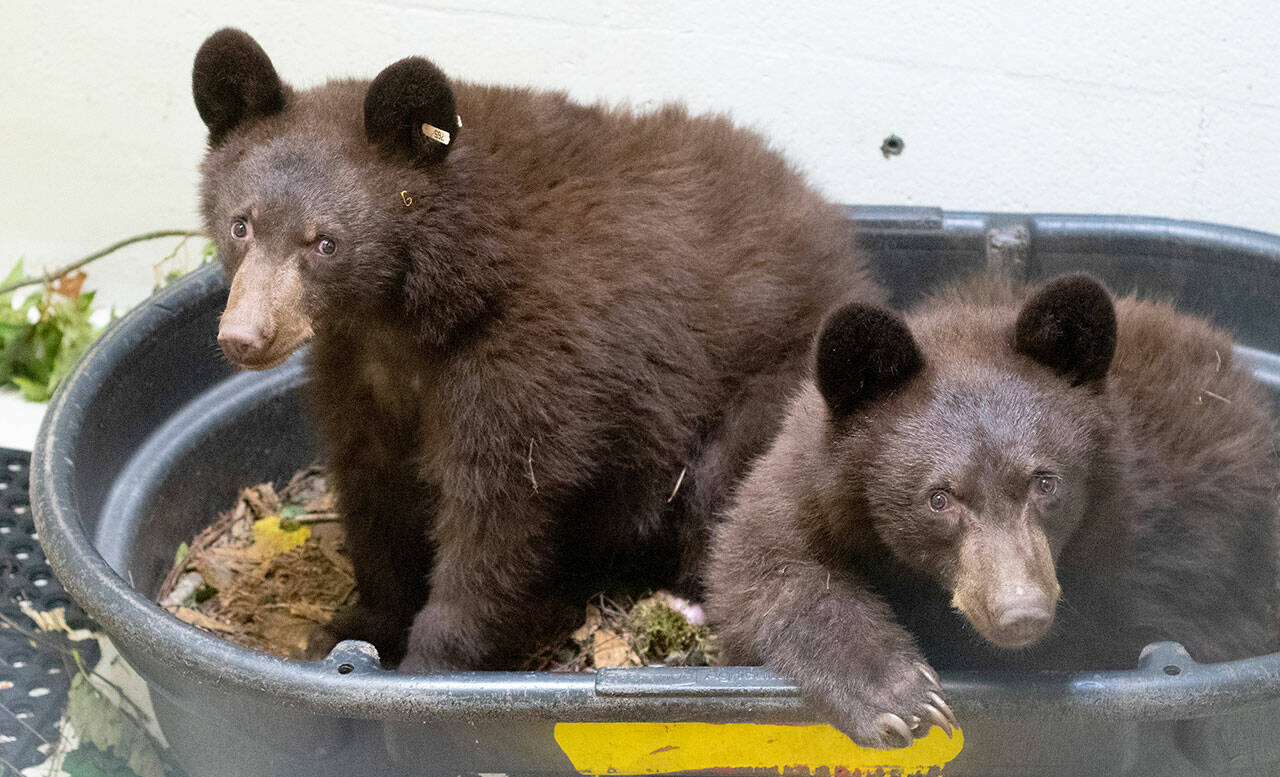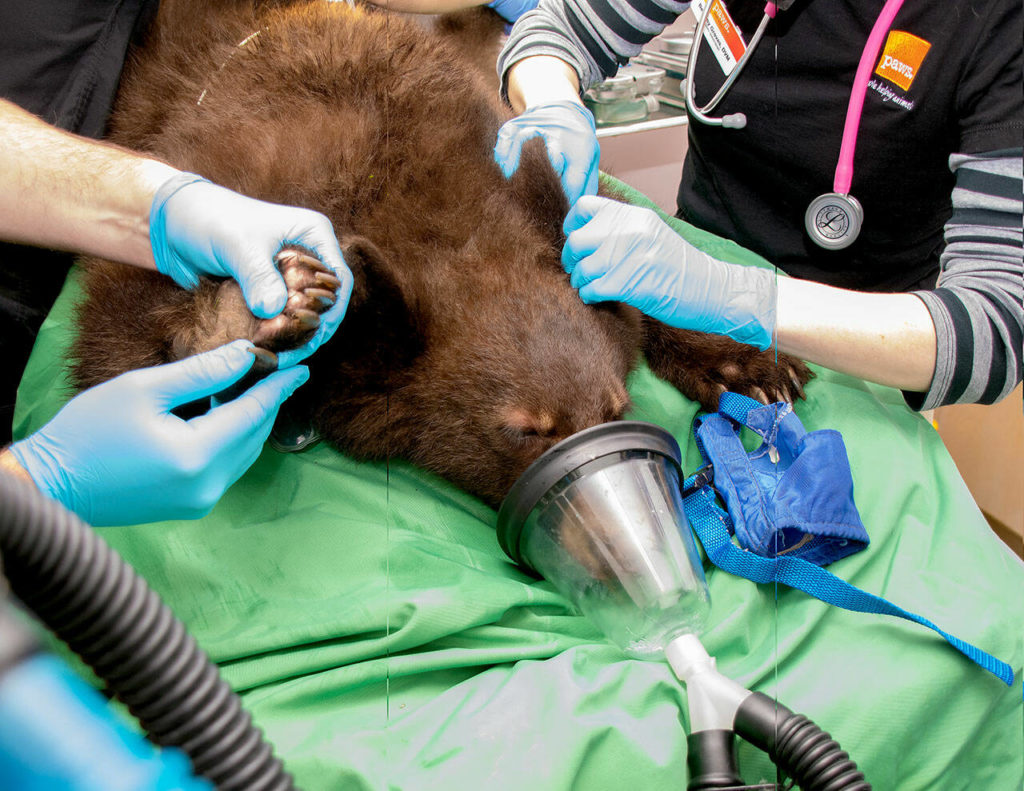LYNNWOOD — Two brother black bears survived a wildfire this summer near Lake Chelan.
As they’ve recovered at PAWS Wildlife Center in Lynnwood, they’ve become famous.
A viral video of the brothers was featured earlier this month on The Dodo, an online media company. As of 2:30 p.m. Friday, it had been viewed more than 2.3 million times on Facebook and over 1.3 million times on YouTube.
If you have Facebook, you’ve probably seen The Dodo’s videos, whether you realized it or not. They’re heartwarming and positive, full of cute animals.
The story of the brother cubs was presented in partnership with Mutual of Omaha’s “Wild Kingdom,” a TV show that first aired in 1963, as part of their “Saving the Wild” series.
Other stories in the series have featured a penguin in Peru named Natalia who was afraid of the water and a baby bat, Barnaby, who suffered a heat stroke in France.
Wildlife expert Peter Gros hosts. He hopes to draw public awareness to issues affecting wildlife, to encourage people to be better stewards of the world around them.
“We’ve always had problems — we’re still facing what seem like insurmountable problems — but I have tremendous hope and optimism … to get people involved that will solve them, just as we have in the past,” he said in an interview with The Daily Herald.
The brother bears don’t have adorable names like the penguin and the bat, because PAWS doesn’t name patients. They’re wild animals, after all, and not naming them helps staff members keep from becoming too attached.
Dave and Karen Case first spotted the cubs in July on their remote, forested 50-acre property near Lake Chelan. Crews with the state Department of Fish and Wildlife searched for the cubs for hours, trudging up and down the hillside in the smoke and heat. By the time they found the bears, their paws were all badly singed.
A third cub was found about 40 yards off Highway 20, near Mazama and the Cedar Creek Fire. A fourth had to be euthanized because its injuries were so bad.
They were brought to PAWS Wildlife Center in Lynnwood, where veterinarians cleaned their wounds, applied ointment and bandaged them up.
Veterinarians sedated the bears for each treatment. In their time at PAWS, the cubs have never seen a human.
They’re symbols, of sorts, of the far-reaching impacts of wildfires, which in recent years have grown bigger and burned longer — what scientists believe is the result of climate change. There are many more animals that don’t make it through the fires. Those that do return to a charred landscape.
“The number of severely burned bears coming to PAWS is not something I’ve seen in my 25 years at PAWS,” said the nonprofit’s Wildlife Director Jennifer Convy at a news conference in August.
PAWS has cared for bears since 1987, seeing an average of six a year. It’s the largest bear rehabilitation facility in the state.
These days, the three surviving cubs are looking good as new.
The brother cubs were separated for months, until they were well enough to meet.
The Dodo video shows footage of their reunion. Dave and Karen Case, the homeowners who alerted authorities to the cubs’ plight, are in the video, too. They watched in awe and amusement as the cubs greeted each other.
When the door separating the cubs’ rooms was lifted, the brothers cautiously eyed each other.
Then, one meandered his way into the other’s room. He ducked behind some foliage. Sniffed the wall. Drank out of the tub.
He got closer. They stood side by side, pawing at a log.
Finally, they met.
They pawed and nibbled at each other. They wrestled playfully.
“This is their version of hugging,” said Dr. Nicki Rosenhagen, a wildlife veterinarian with PAWS.
David and Karen Case had seen them play like this before — before the fires.
“You two, is this like being reunited with an old family member?” Gros asked them in the video.
“I’m surprised my wife isn’t bawling,” David Case said.
PAWS is now caring for five black bear cubs at the wildlife center. They’ve become fond of one another, spokesperson Laura Follis said. She calls them a “five-headed bear.”
With winter on the way, PAWS is dimming the lights for the cubs as they ready for hibernation.
This spring, it’ll be time for them to go back to the wild.
Their chances of survival should be high.
Zachariah Bryan: 425-339-3431; zbryan@heraldnet.com. Twitter: @zachariahtb.
Want to help?
PAWS is a private nonprofit that depends on the generosity of individual donors to make their work possible. Learn more about how to give at paws.org/helpbears.
Talk to us
> Give us your news tips.
> Send us a letter to the editor.
> More Herald contact information.


























